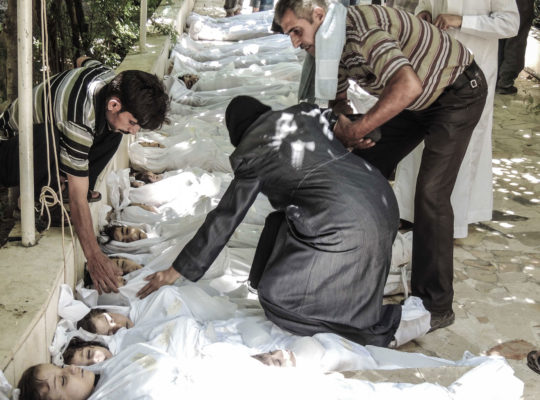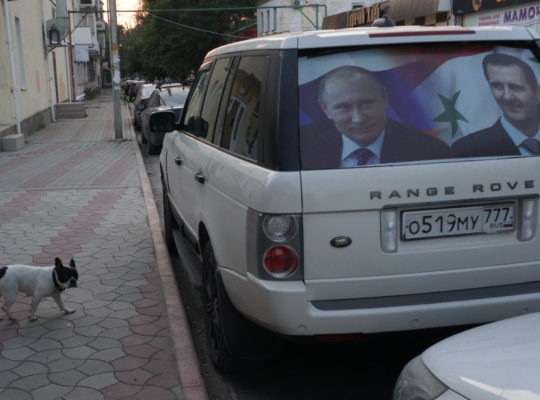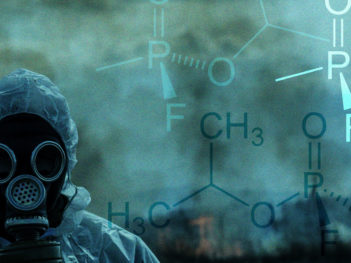
chemical weapons

Inside the Pro-Assad ‘Echo Chamber’
The real issue here is not so much the denial of chemical attacks as the way it serves as a vehicle for normalizing conspiracy theories under the guise of critical thinking. Admirable though it is to view news reports and government statements with caution and scrutinize the evidence, the denial campaign was something else, encouraging people to reject information at will simply because it didn't fit their view of how the world works.

How an Email Sting Operation Unearthed a pro-Assad Conspiracy—and Russia’s Role In It
Attempts to undermine the Organisation for the Prohibition of Chemical Weapons' investigation of the 2018 Douma chemical weapon attack involved Russian diplomats, Russian state media, WikiLeaks, and Julian Assange’s personal lawyer.

Seven Minutes that Can Save a Syrian School from a Bomb
The regime’s barbarity was known to us, but it had now crossed President Barack Obama’s red line and U.S. retaliation seemed imminent following the chemical attacks of 2013. What followed, however, was silence and inaction. And the consequences were catastrophic. I know because I was there to witness it.

The Day the World Stood Still
On August 21, 2013 the Syrian regime launched the biggest chemical attack of the 21st century. It was a seismic event whose repercussions are still being felt. This is an account of what happened that day and how the decisions made in its aftermath sealed Syria’s fate.

On the Streets of Damascus
I reported from the Syrian capital when a peaceful protest movement became an armed insurgency. Here's what I saw.
